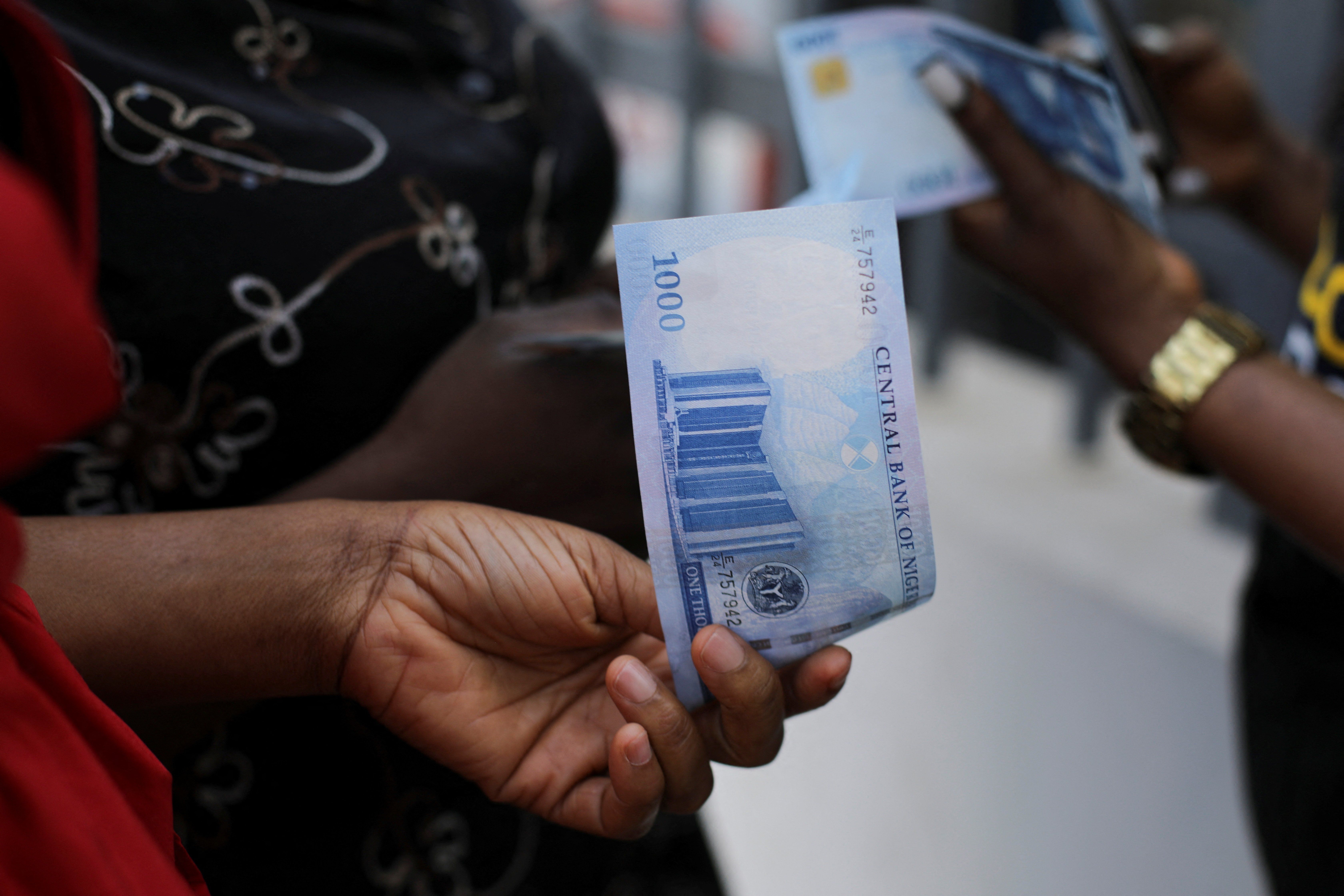Nigeria’s currency crisis
It’s a little over a week before voters head to the polls in Nigeria, Africa’s most populous country, and temperatures on the streets are rising amid protests over a cash shortage. In November, outgoing President Muhammadu Buhari began a program of phasing out currencies of high denominations, saying it would help transition the country to a cashless economy and clamp down on the currency black market and inflation. The timing appears odd so close to an election, but Buhari’s explanation has been that the measure will curb vote buying. But fast forward three months, and banks are running low on cash, with people having to line up for hours to withdraw their own savings. After being told by the government to hand in large denomination notes in exchange for new wads of cash, many are being sent home empty-handed. This is particularly problematic because the West African country of more than 213 million is highly reliant on cash, with just 45% having access to a bank account in 2021. Violence is on the rise as frustrated Nigerians take to the streets, which presents increasing governance challenges ahead of the crucial Feb. 25 vote. In a bid to calm things down, Buhari announced Thursday that one of the three banknotes being phased out would remain legal for another two months. For more on what’s at stake, see this Q+A with Eurasia Group’s Africa expert Amaka Anku.
Bolsonaro plans to return home
The famous Brazilian singer Tom Jobim once said, in so many words, living abroad is great, but it’s crap – living in Brazil is crap, but it’s great. Brazil’s right-wing former President Jair Bolsonaro seems to agree: After months of self-imposed exile in South Florida, he reportedly plans to return to Brazil in March to lead the opposition against his nemesis, left-wing President Luiz Inácio “Lula” da Silva. Bolsonaro has been a “Florida Man” since December, after losing to Lula in a presidential election he and his supporters believe was stacked against them. Although Bolsonaro is still hugely popular in Brazil — he lost by less than 2 points — returning is risky. Brazil’s Supreme Court is already investigating his role in the January 8 riots, when thousands of Bolsonaristas ransacked government buildings in the capital, Brasilia. When Bolsonaro arrives, Lula will have a big decision to make. With things as polarized as they are, jailing Bolsonaro or banning him from politics could backfire. Who would know that better than Lula himself? He was imprisoned for corruption in 2018, only to walk free a year later and storm his way back to the presidency.
Beijing’s balancing act
Former Foreign Minister Wang Yi, a chief foreign policy advisor to President Xi Jinping, is on a whirlwind trip to Europe, where he aims to bolster economic ties. On Wednesday, he met with Emmanuel Macron, reportedly asking the French president for help in getting the US to rein in efforts to clamp down on China’s tech sector (the US recently recruited Japan and the Netherlands to join tech export controls on China). Wang is also making stops in Italy, Hungary, and finally Germany, where he’ll attend the Munich Security Conference. Relations between China and the US, as well as much of the EU, have been strained in recent months – to put it mildly. But with Beijing’s economy in decline after years of self-imposed zero-COVID chaos, Beijing is looking for friends with deep pockets wherever it can find them. This might also explain why Wang is reportedly hoping to meet with US Sec. of State Antony Blinken on the sidelines of Munich. If it happens, it’ll come just a few weeks after Blinken’s planned visit to Beijing was canceled after a Chinese spy balloon was identified – and subsequently shot down – over US airspace. EU leaders, meanwhile, are unlikely to acquiesce to China unless Beijing starts distancing itself from Russia’s aggression in Ukraine.
Armenia offers Azerbaijan a peace plan project
The search for peace in Nagorno-Karabakh continues. Armenia has presented Azerbaijan
with a project it hopes will achieve lasting peace in the Caucasus region, which the two former Soviet Republics have fought two wars over since the dissolution of the USSR, killing thousands. The most recent one in 2020 ended with a Russia-brokered peace deal, but clashes late last year threatened to unravel both the ceasefire and
repeated efforts at a permanent resolution to the conflict. The Armenian plan outlines monitoring mechanisms by both countries to prevent breaches of a peace deal. The region is claimed by Azerbaijan but has a majority Armenian population that has been semiautonomous since the early 1990s and enjoys close relations with nearby Armenia. Complicating matters further, Turkey supports Azerbaijan while Russia is committed to defending Armenia in case of military escalation in a region rich in oil and gas. We’ll be watching to see how Azerbaijan responds and whether the two sides can come to an agreement on ending
the long-simmering conflict.